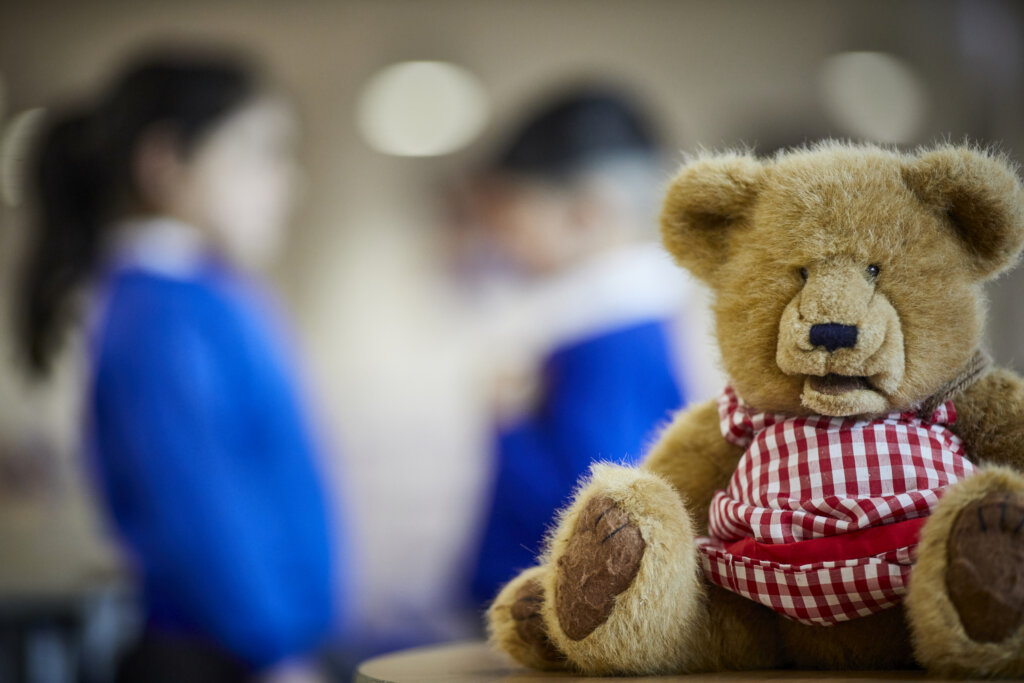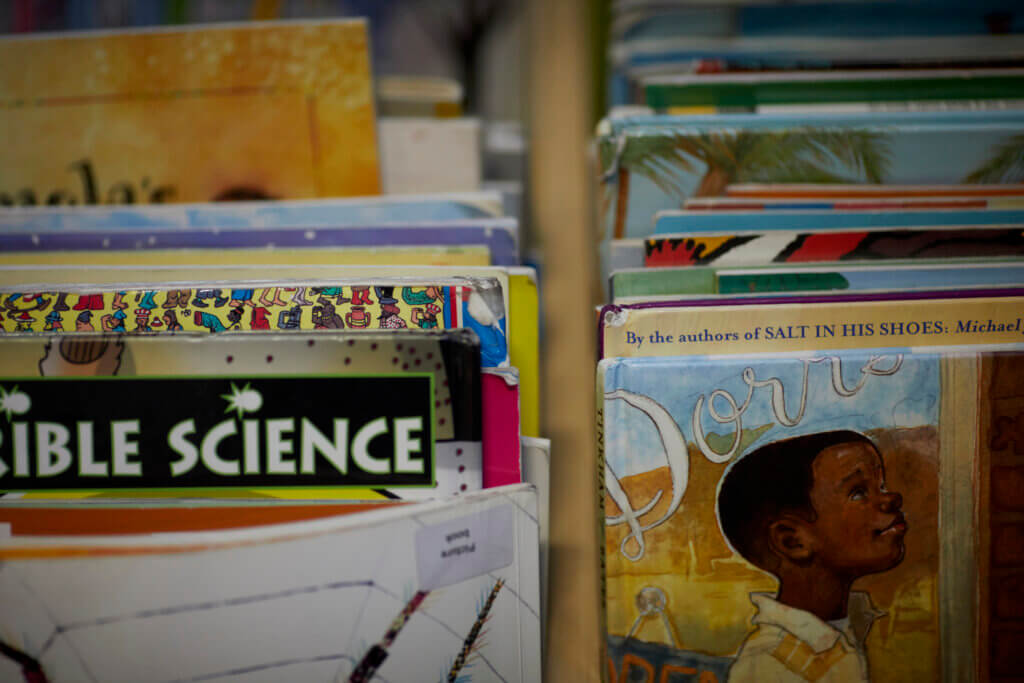‘Now the whole school is reading’: supporting struggling readers in secondary school
“The ability to read is a fundamental life skill” – Ofsted, 2022
Based on their research, Ofsted have released new guidance on how best to support pupils struggling with reading in secondary school.
Reading is the key that unlocks learning in all areas of the curriculum, in addition to many other benefits for the child as a whole. We know reading for pleasure has been shown to reduce stress levels and help mental health and wellbeing for children. Books can also provide so many opportunities for students to see themselves and others in what they read; “books can act as mirrors and as doors” (Dr Rudine Sims Bishop), whilst widening knowledge on so many different topics.
Ofsted’s report states that only 10% of disadvantaged children who leave primary school without achieving expected in reading pass their English and mathematics GCSE. Children’s lack of fluency and inability to access a given text means that they do not develop the background knowledge and vocabulary which would enable them to learn across the curriculum, therefore impacting learning in all subjects.
But, going further than a child’s time at school, reading is a life skill. We need to ensure that when pupils leave education they are equipped to pursue a career, keep up to date with the news, deal with daily correspondence and manage personal affairs to name but a few. An inability to read will inevitably hold young people back from following opportunities; reading has the power to shape and change the paths that we can or cannot take
“Children who cannot read well find it difficult to keep up in secondary school. Reading is an essential part of almost every subject. How can children learn history or geography if they can’t get to grips with textbooks or worksheets? How can they do well in another language when they haven’t fully grasped their own?“
– Amanda Speilman, HM Chief Inspector (2022)
To conduct this latest study, Ofsted visited six secondary schools in which children were seen to make accelerated progress in reading. They looked at “…how the schools identify specific reading weaknesses, and how they provide targeted support for struggling readers”.
As Ofsted reiterate throughout the report, there is a profound impact on children’s education if they are unable to read fluently at secondary school. Through the publication, they highlight the need for bridging this gap and also give tried and tested ways in which this can happen at school. The interventions were shown to be most effective when matched to the individual needs of pupils, helping them to develop the specific aspect or aspects of reading that were not secure when leaving primary school.
Below are the key points to take away from the research, to help close the gap in children’s attainment in reading at secondary school:
1) Prioritise and Celebrate Reading: A Whole-School Approach
The schools in the study had all invested in help for children who struggle with reading and had trained staff to support them. The Senior Leaders were at the forefront of this, making sure that these interventions were in addition to a well-thought-out curriculum in which reading was embedded. The commitment to raising the profile of reading, and the role that each staff member played in delivering this, was clear.
One Education’s suggestions for helping prioritise reading in your school:
Inviting reading environments where children can read for pleasure
The use of diverse, high-quality texts across the curriculum
Access to HiLo texts and Dyslexia-friendly books
Staff are seen as readers
Sharing book reviews/recommendations
School library with a wealth of fiction and non-fiction books, updated regularly. If possible, with a school librarian to support children make informed choices based on their interests and needs
2) Assess Pupils’ Reading Regularly and Analyse Gaps
The study showed that the focus schools screened all new pupils’ reading, followed by diagnostic tests to highlight areas of reading that the pupils struggled with. Regular assessments took place, in which all aspects of reading were covered: fluency, word reading, comprehension and phonic knowledge. Teachers then knew exactly the skills to focus on with the children. Another key point to take away from the report is that the impact of additional teaching was monitored; using evidence from classrooms, books and pupils themselves.
One Education’s suggestions for effective assessment of reading:
Pupils are assessed formatively and summatively as part of their reading lessons
Use assessment to inform teaching
Ensure assessment is consistent in approach throughout the school, as well as being regularly discussed, monitored and evaluated
Put regular tracking in place alongside statutory tests. This ensures barriers to early reading are swiftly identified and appropriate strategies and interventions put in place to overcome them
Make sure any trends/underperforming groups are identified and addressed swiftly
3) Equip Teachers with the Knowledge to Teach Weaker Readers
Early reading is often an area in which secondary teachers do not feel as confident. In the study, Ofsted state that “schools made sure that staff who taught specific aspects of reading, or particular reading programmes, have relevant training”. These staff members then shared their expertise by peer-coaching their colleagues, with one reading support teacher stating,_ “I am constantly being approached for advice”_.
Schools in the study shared information about struggling readers with all staff, for example by creating pupil profiles that including information about specific reading programmes pupils were using. In one school, all staff who taught the lower sets had annual phonics training, to help them support children’s developing reading skills in class. Additionally, lots of focus was put on developing fluency which is often thought of as the link between decoding and comprehension.
One Education’s suggestions for developing staff knowledge of reading:
Ensure all staff have a knowledge of using phonics to support decoding
Train staff in strategies to support develop fluency
Hold regular staff meetings on latest research/developments/guidance on early reading and phonics
Ensure all new members of staff are trained in early reading and phonics; there is a clear induction programme in place
Give staff regular opportunities to engage in peer coaching and support for the teaching of early reading and phonics
“As pupils’ reading improved, they gained confidence and became more motivated to engage with reading in class.”
With timetables already stretched to meet the demands of the curriculum, it may feel like a difficult decision when to timetable additional reading lessons. In terms of sometimes prioritising literacy over other subjects, one school in the study made an “ethical judgement as a school that, in terms of access to the wider curriculum, they would benefit more from having that focus”. Another school had introduced morning interventions, meaning children came to school a little earlier for their additional reading lesson. The headteacher at this school felt that taking children out of their lessons was “detrimental to their learning”.
However it is managed in your school, the key message from the report is that reading is an essential life skill if young people are to be given a chance for economic and social success in the future. Included in the report is the alarming statistic that “57% of adult prisoners taking initial assessments had literacy levels below those expected of an 11-year-old” (Prison Education Statistics 2019-20, Ministry of Justice 2021). With figures such as these, it would be difficult to argue against the importance of all young people leaving school with functional literacy skills.
One Education’s Secondary Reading Award supports schools in improving reading provision, with access to many resources and the option of consultant-led support, tailored to the needs of your school.
For more information please visit our Reading Award page. Or email catherine.delaney@oneeducation.co.uk
In a study by the DfE researching children’s progress in KS2 and KS3, it was found that “the average progress is lowest in year 7 for reading and in year 8 for writing and maths.”
Report: How do pupils progress during Key Stages 2 and 3?
Our upcoming Transition Conference, in collaboration with Manchester City Council, provides an opportunity for colleagues in KS2 and KS3 to share knowledge and learn from others in order to support children transitioning from primary to secondary school. There are a vast range of keynotes and workshops, with the hosts offering a wealth of expertise on how to help children make a positive and successful start to their secondary education.
Book your place here:
Transition Conference 2023: Collaborating for Success with MCC & One Education
















